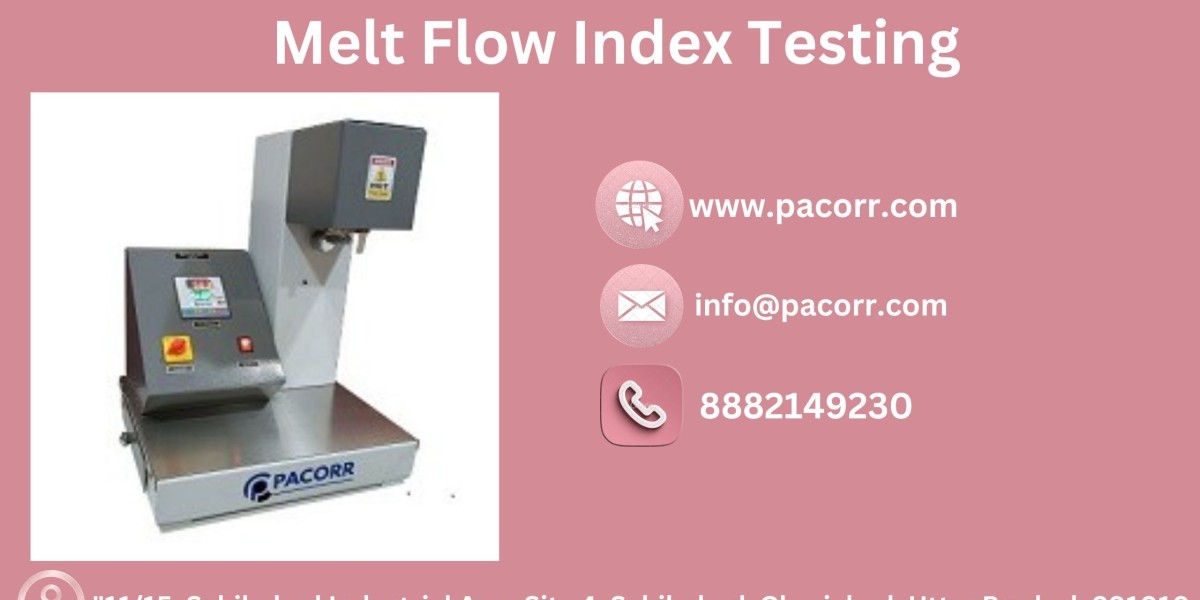Understanding the Importance of the Melt Flow Index Tester
In the world of polymer manufacturing, precise testing and quality assurance are paramount. One crucial instrument in this field is the Melt Flow Index (MFI) Tester, a device designed to measure the flow rate of molten plastics. This tool plays a significant role in ensuring that plastic materials meet the required standards for various applications, from packaging to automotive parts.
What is a Melt Flow Index Tester?
The Melt Flow Index Testing, also known as a melt flow rate tester, is used to determine the viscosity of thermoplastic polymers during the melting process. It measures the rate at which a polymer sample flows through a capillary die under specific conditions of temperature and load. The result is expressed in grams per 10 minutes (g/10 min), providing a quantitative measure of the polymer's flow characteristics.
Why is the Melt Flow Index Important?
The Melt Flow Index Teste is a critical parameter in polymer processing because it directly influences the material's processability. A higher MFI indicates a lower viscosity, suggesting that the polymer flows more easily when melted. Conversely, a lower MFI indicates higher viscosity, meaning the polymer is more resistant to flow. Understanding this characteristic helps manufacturers select the right material for specific applications and optimize processing conditions such as temperature and pressure.
Applications of Melt Flow Index Testing
- Quality Control: Ensuring consistency in the production of plastic materials by regularly monitoring the melt flow rate.
- Material Selection: Assisting in the selection of appropriate polymers for specific manufacturing processes.
- Research and Development: Facilitating the development of new polymer formulations with desired flow properties.
- Regulatory Compliance: Ensuring that materials meet industry standards and regulatory requirements.
Features of Pacorr's Melt Flow Index Tester
Pacorr's Melt Flow Index Tester is designed to deliver accurate and reliable results. Key features include:
- Precision Engineering: Ensures consistent and repeatable measurements, critical for quality control and research purposes.
- User-Friendly Interface: Simplifies operation, allowing technicians to quickly and easily conduct tests.
- Robust Construction: Built to withstand the rigors of industrial environments, ensuring long-term durability and reliability.
- Versatile Testing Capabilities: Capable of testing a wide range of thermoplastic materials under various conditions.
Benefits of Using Pacorr's Melt Flow Index Testing
- Enhanced Quality Control: Regular testing with the MFI Tester helps maintain product consistency and quality.
- Optimized Production Processes: By understanding the flow properties of polymers, manufacturers can fine-tune processing conditions to enhance efficiency and reduce waste.
- Compliance and Certification: Ensures that products meet industry standards, facilitating certification and market acceptance.
- Cost Savings: Reduces material wastage and improves process efficiency, leading to significant cost savings.
Conclusion
The Melt Flow Index Tester is an indispensable tool for any polymer manufacturer. Its ability to accurately measure the flow properties of thermoplastics ensures that products meet stringent quality standards and perform reliably in their intended applications. Pacorr's MFI Tester stands out for its precision, durability, and ease of use, making it a valuable addition to any quality control laboratory.







